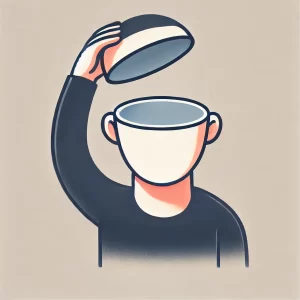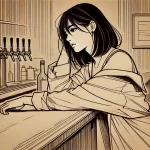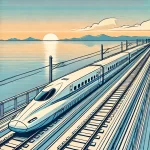CHA-LA HEAD-CHA-LA [Chara Hecchara]
影山ヒロノブ [KAGEYAMA Hironobu]
Words : 森雪之丞 [MORI Yukinojō]
Music : 清岡千穂 [KIYOOKA Chiho]
“Dragon Ball wiki” is well known to many people. It is a manga by Akira Toriyama wiki that was serialized in a magazine from 1984 to 1995. The total number of copies published worldwide is about 260 million, spanning over 80 countries. The TV anime series started in 1986 and continued under the name “Dragon Ball Z” from 1989 until 1996. However, the original work is consistently “Dragon Ball.”
Regarding the addition of “Z” Toriyama stated that he wanted to end “Dragon Ball” quickly and chose the last letter of the alphabet. However, I feel that he might have chosen it because it sounds strong. There was a famous manga and anime called “Mazinger Z wiki” in the 1970s. Since then, it seems that Japanese people have had a mysterious trust or something in the letter “Z.” This is my personal opinion. By the way, it is pronounced as “zetto,” not ”Zee” or “Zed”.
I digress. Sorry. “Cha-La Head-Cha-La” is the opening theme for “Dragon Ball Z.” Its popularity in the West is evident from the fact that the English Wikipedia page is more detailed than the Japanese page, lol. Let’s carefully read the lyrics.
光る 雲を突き抜け fly away (Fly away)
hikareru kumo o tsukinuke fly away (fly away)
からだじゅうに 広がるパノラマ
karadajū ni hirogaru panorama
- 光る(ひかる)[hikaru] : shine
- 雲(くも)[kumo] : cloud
- 突き抜ける(つきぬける)[tsukinukeru] : pierce through
- 体(からだ)[karada] : body
- 広がる(ひろがる)[hirogaru] : spread
- パノラマ(ぱのらま)[panorama] : panorama
(translation) “Piercing through the shining clouds, fly away.
A panorama spreads throughout the body”
First, let me tell you that these lyrics often don’t make sense. They are written to match the world of a boy’s manga, so please read with that in mind.
Piercing through the clouds and spreading a panorama throughout the body feels very refreshing. From around 1989, when it became “Z,” all the characters in “Dragon Ball” began to fly freely in the story. It was normal.

顔を 蹴られた地球が怒って (怒って)
kao o kerareta chikyū ga okotte (okotte)
火山を爆発させる
kazan o bakuhatsu saseru
- 顔(かお)[kao] : face
- 蹴られる(けられる)[kerareru] : kicked
- 地球(ちきゅう)[chikyū] : earth
- 怒る(おこる)[okoru] : angry
- 火山(かざん)[kazan] : volcano
- 爆発(ばくはつ)[bakuhatsu] : explode
(translation) “The earth, kicked in the face, gets angry
and makes a volcano explode.”
Since it became “Z,” scenes of large-scale destruction to the ground have increased.

溶けたこおりの中に
toketa kōri no naka ni
恐竜がいたら 玉乗り仕込みたいね
kyōryū ga itara tamonori shikomitai ne
- 溶ける(とける)[tokeru] : melt
- 氷(こおり)[kōri] : ice
- 中(なか)[naka] : inside
- 恐竜(きょうりゅう)[kyōryū] : dinosaur
- 玉乗りを仕込む(たまのりをしこむ)[tamonori o shikomu] : train to perform balancing acts
(translation) “If a dinosaur were inside the melted ice,
I’d want to train it to perform balancing acts.”
I don’t understand, but dinosaurs and monsters often appear in Toriyama Akira’s manga. They are quite cute.
By the way, are you familiar with the video game “Dragon Quest wiki” (known as “Dragon Warrior” in North America)? In Japan, it is as popular as, or even more popular than, “Final Fantasy.” The monster designs in the game are by Akira Toriyama.”

Cha-la Head-cha-la
Cha-la Head-cha-la
何が起きても気分は へのへのカッパ
nani ga okite mo kibun wa henohenokappa
- 何(なに)[nani] : what
- 起きる(おきる)[okiru ] : happen
- 気分(きぶん)[kibun] : mood
- 屁の河童(へのかっぱ)[heno kappa] : “no big deal”
– EXTRA WORDS –
- ちゃら(ちゃら)[chara] : “nothing”
- へっちゃら(へっちゃら)[hecchara] : “no big deal”
- ちゃらちゃらする(ちゃらちゃらする)[chara chara suru] : “act frivolously”
(translation) “Cha-la Head-cha-la
No matter what happens, it’s no big deal”
“ちゃら / Chara” means to make something nothing. For example, if the plan to make a live-action movie of “Dragon Ball” in Hollywood is canceled, it becomes “ちゃら / chara.” What? It didn’t become chara? No way? Well, let’s not think about it.
By the way, there is also the word “ちゃらちゃらする / chara chara suru,” which means to act frivolously or flippantly. Such a man is called “ちゃら男 / chara o(= guy).”
“へっちゃら / Hecchara” means not to care. They all seem to have the same origin.
Here, “Chara” and “heccara” are combined to sound like English.
“屁の河童 / he no kappa” also means the same as hecchara. “屁 / He” means “fart,” and “河童 / Kappa google” is a traditional Japanese monster.

Cha-la Head-cha-la
Cha-la Head-cha-la
胸がパチパチするほど
mune ga pachipachi suru hodo
騒ぐ元気玉
sawagu genkidama
- 胸(むね)[mune] : chest
- パチパチ [pachi pachi] : crackling
- 騒ぐ(さわぐ)[sawagu] : noisy
- 元気(げんき)[genki] : energy
- 玉(たま)[tama] : sphere
(translation) “Cha-la Head-cha-la
My chest crackles
with a noisy Genki Dama”
“パチパチする / Pachi pachi suru” is usually used for the sound of quiet fire or static electricity. It is not normally used for anything else.

“ドキドキ / doki doki” would mean a heartbeat, indicating anxiety or fear.
“胸が騒ぐ / mune ga sawagu” means the heart is restless with anxiety or expectation.
Combining them means there is anxiety and expectation, but no fear, with a mysterious “パチパチ / pachi pachi” sound. This seems to reflect the character of Gokū in “Dragon Ball.” Gokū often feels excitement rather than fear even against terrifying opponents. Maybe the lyricist thought that deeply.
And then, “元気玉 / Genki Dama.” Although it seems the lyrics avoid directly referring to “Dragon Ball,” “Genki Dama” is obviously a technique name from “Dragon Ball.” In the English version, it would be “Energy Sphere.” It might have been “pachi pachi-ing.”
Actually, there is a second verse to this song, but let’s stick with the short version for the TV anime this time.
Cha-la Head-cha-la
Cha-la Head-cha-la
頭カラッポの方が 夢詰め込める
atama karappo no hō ga yume tsumekomeru
- 頭(あたま)[atama] : head
- からっぽ(からっぽ)[karappo] : empty
- 夢(ゆめ)[yume] : dream
- 詰め込む(つめこむ)[tsumekomu] : cram in
(translation) “Cha-la Head-cha-la
It’s better to have an empty head to cram in dreams.”
An empty head means being stupid, but it’s good because you can cram in dreams. It means it’s okay to feel like it’s “no big deal” no matter what happens.
Also, “Head-cha-la” can be read as” へっちゃら / hecchara” : “no big deal,” but I interpret it as “head” being “chara,” meaning the head becomes nothing.

Cha-la Head-cha-la
Cha-la Head-cha-la
笑顔ウルトラ Z で
egao urutora zetto de
今日もアイヤイヤイヤイ
kyō mo ai yai yai yai
Sparking
Sparking
- 笑顔(えがお)[egao] : smile
- ウルトラ(うるとら)[urutora] : ultra
- 今日(きょう)[kyō] : today
(translation) “Cha-la Head-cha-la
Cha-la Head-cha-la
With a smile ultra Z,
today is Ai-yai-yai-yai
Sparking”
I have no idea what this means. It’s very head empty Z. Fun.

I’m not very familiar with manga or anime, but I had all the volumes of “Dragon Ball” manga and played “Dragon Ball” with my friends as a child. At that time, I never imagined a day would come when people all over the world would be so obsessed with “Dragon Ball” and Japanese subculture. I’m really happy. Thank you all for your interest.
Akira Toriyama passed away at the age of 68 in March 2024. The Chief Cabinet Secretary of Japan, commenting on the news of his passing, said, “Toriyama’s works played a crucial role in the global recognition of Japanese content, significantly contributing to our nation’s soft power.” I sincerely pray for his soul to rest in peace.
YouTube Search ” Cha-La Head-Cha-La – Hironobu Kageyama “
Thanks for reading! Feel free to comment if you have any feedback or questions.
Follow me on X.



